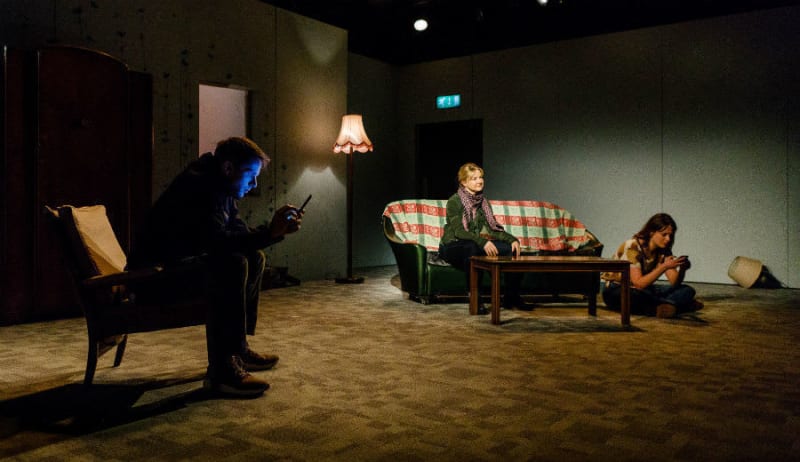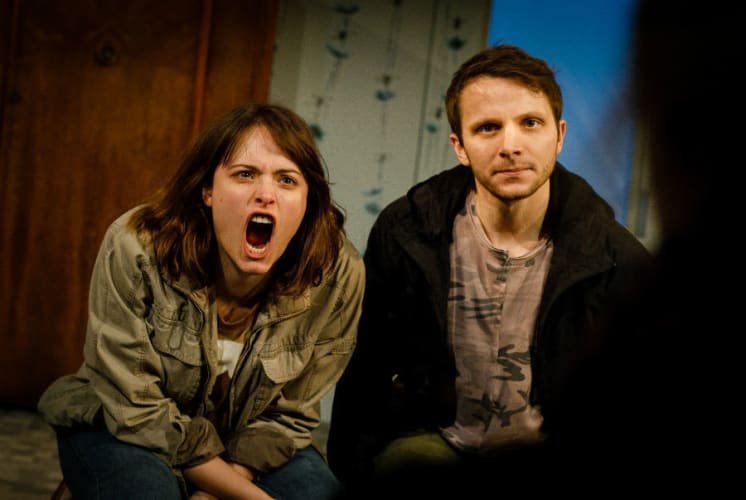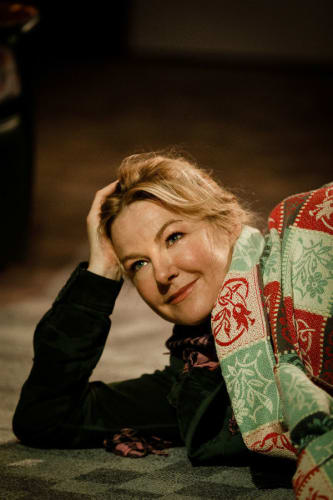Mikhail Durnenkov’s The War Has Not Yet Started gives us a disturbing vision of contemporary Russia.
Twelve brief scenes featuring different characters each follow a similar pattern.
An ordinary situation begins to take on a bleak, surreal form. Its characters are fearful of the world around them. They are caught up in fractured distrustful families, domestic violence, strange threats, and nations at war.
Yet the show opens with what could almost be a promotional advertisement as unnamed people speak about the different ways they “feel soft and warm... in the zone.”
But they go on to talk about the danger beyond that private zone where you can be attacked by the ones whose “souls are on fire.”
Putin’s Russia is never directly referred to in the play but its suppression of an independent media and democratic opposition, its domestic cruelties and foreign wars are the source of its characters paranoia and the plays cynicism.
When the lights go out on a couple in the departure lounge of an airport, they fear a terrorist attack or some sort of trick by the authorities to allow an informant to report on their reaction.
In a scene entitled “A Day in the Life”, a man sends his son to the safety of his mother’s home after seeing a TV report of an enemy country gleefully burning a small boy. He refuses to believe his wife who was the TV reporter of the item when she says it was fake news about what the enemy would like to do.
Too often, characters feel like “aimless fish swept along by the currents,” at the mercy of sudden strange threats and violence.
A woman begging on the street is kicked, someone standing near a swimming pool is accused of a sexual assault by a person demanding money, and a young boy is employed by the authorities to test out computer war games modelled on real immediate situations where, according to the boy, “everything’s divided into two camps: the mind-fuckers and the cannibals.”
People try to escape the horror by making up stories. One man copes by being “a robot with an absurdity implant” that allows him to process ridiculous situations. Unfortunately, it stops working.
The fluent, unsettling script is always interesting, very occasionally funny. The three actors Sarah Hadland, Mark Quartley and Hannah Britland give an intense riveting performance.
The scenes build up a cynical picture of a country feeling under siege, riven with fear and confused about the nature of the problems facing it.
Only rarely do we get a glimmer of hope. There is the boy who marches for peace despite his parent’s fury at his association with those they believe are the enemy. And there is what a woman says about a violent domestic situation.
They are very little to build on and, as Putin faces an election in a few months' time, we can only hope the play is wrong about the possibility of people in Russia being able to choose a different form of society.


